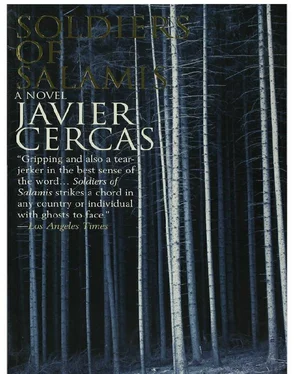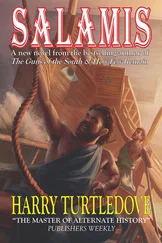'You used to be a writer and a politician, Rafael,' Agustin de Foxa said to him around this time. 'Now you're just a millionaire.' Foxa was a writer and a politician and a millionaire, and one of the few friends Sánchez Mazas didn't end up losing over time. He was also a clever man, and as so often happens with clever men, he was often right. It's true that, after receiving his aunt's inheritance, Sánchez Mazas held various political posts from member of the Leadership Council of the Falange through to Deputy Member of Parliament, by way of President of the Patrons' Association of the Prado Museum but it's also true they were always secondary or decorative and barely took up his time and that from the middle of the forties he began to give them up as if shedding an annoying burden, and little by little, as time went by, he disappeared from public life. This does not mean, however, that Sánchez Mazas in the forties and fifties was a kind of silent opponent to Franco's government; he undoubtedly scorned the intellectual shoddiness and the mediocrity the regime had imposed on Spanish life, but he didn't feel uncomfortable in it, nor did he hesitate to proffer in public the most embarrassing dithyrambs to the tyrant and even, if it came to that, to his wife — though in private he flayed them for their stupidity and bad taste and nor, of course, did he lament having contributed with all his might to inciting a war which razed a legitimate republic and failed to replace it with the terrible regime of poets and renaissance condottieri he'd dreamt of, but rather with a simple government of rogues, rustics and sanctimonious goody-goodies. 'I neither regret nor forget,' he famously wrote, by hand, in the full page frontispiece of Foundation, Brotherhood and Destiny, a book where he reprinted some of his bellicose articles of Falangist doctrine that in the thirties he'd published in Arriba and F.E. The phrase is from the spring of 1957; the date compels reflection. Madrid was then still in the grip of the backlash after the first great internal crisis of Francoism, stemming from an alliance, unexpected but in fact inevitable, between two groups Sánchez Mazas knew very well, because he lived with them on a daily basis. On one side, the young left-wing intelligentsia, an important part of which had arisen from the disillusioned ranks of the Falange itself and was made up of rebellious scions of notorious families of the regime, among them two of Sánchez Mazas' sons: Miguel, the first-born, one of the ring-leaders of the student rebellion of 1956—who in February of that year was j ailed and shortly afterwards left to a long exile — and Rafael, Sánchez Mazas' favourite, who had just published Eljarama, the novel in which the aesthetics and intellectual restlessness of those dissident youths came together; on the other side, a few 'old shirts' —among whom, in the front line, was Dionisio Ridruejo, an old friend of Sánchez Mazas, who had been arrested along with his son Miguel, and other student leaders from the anti-Franco outcry of the previous year, and in that same year, 1957, founded the social-democratic Social Party of Democratic Action — old Falangists from the early days who had perhaps not forgotten their political past, but who doubtless did regret it and were even undertaking, with more or less determination or courage, to combat the regime they had helped to bring about. I neither regret nor forget. Since emphatic loyalty so often denounces the traitor, there are some who suspect that if Sánchez Mazas wrote such a thing at such a time, it was precisely because, like some of his José Antonian comrades, he did regret — or at least partially regretted, and was trying to forget — or at least he was trying to partially forget. The conjecture is attractive, but false; in every case, apart from the secret disdain with which he contemplated the regime, not a single particular of his biography endorses it. 'If there's one thing I hate the Communists for, Your Excellency,' Foxa once said to Franco, 'it's for obliging me to join the Falange.' Sánchez Mazas would never have said such a thing — too irreverent, too ironic — and much less in the presence of the General, but it undoubtedly goes for him too. Perhaps Sánchez Mazas was never more than a false Falangist, or else a Falangist who was only one because he felt obliged to be one — if all Falangists weren't false and obligatory ones, deep down never entirely believing that their ideology was anything other than a desperate measure in confusing times, an instrument destined to succeed in changing something in order that nothing change; I mean, had it not been because, like many of his comrades, he felt a real threat looming over his loved ones' sleep of bourgeois beatitude, Sánchez Mazas would never have stooped to getting involved in politics, nor would he have applied himself to forging the blazing rhetoric of the clash needed to inflame to victory the squad of soldiers charged with saving civilization. Sánchez Mazas identified civilization with the securities, privileges and hierarchies of his own people and the Falange with Spengler's squad of soldiers; but he also felt pride in having formed part of that squad and, perhaps, the right to rest after having restored hierarchies, securities and privileges. That's why it's doubtful he would have wanted to forget anything, and certain that he regretted nothing.
So, strictly speaking, it cannot be claimed that Sánchez Mazas was a politician during the post-war period; it would seem more contentious to maintain, as does clever Foxá, that nor was he a writer. Because it's true that in these years, as the political activity decreased, the literary increased: in the two decades following the war, novels, short stories, essays and theatre adaptations came out under his name, as well as innumerable articles appearing in Arriba, La Tarde, and ABC. Some of these articles are exceptional, finely crafted verbal jewels, and certain books he published then, like The New Life of Pedrito de Andía (1951) and The Waters of Arbeloa and OtherMatters (1956), figure among the best of his oeuvre. And yet it is also true that, although between the mid-forties and the mid-fifties he occupied a pre-eminent place in Spanish literature, he never bothered about having a literary career (an effort, like that of a political career, he always thought beneath the dignity of a gentleman), and as time went on he practised, with increasing skill, the subtle art of concealment, to the point where, for five years starting in 1955, he signed his ABC articles with three enigmatic asterisks. As to the rest, his social life was confined to assiduously keeping up with the few friends who, like Ignacio Agusti or Mariano Gomez Santos, had managed to survive the excesses of his character and, from the beginning of the fifties, the very occasional visit to the literary circle that Cesar González-Ruano brought together at the Café Comercial at the Glorieta de Bilbao in Madrid. González-Ruano, who knew him well, at that time saw Sánchez Mazas 'as a great amateur, like a senior gentleman of letters, like a great, unmatched Senor who hadn't ever needed to make a profession of his vocations, but rather wrote verse and prose exercises during his vacations'.
In other words, Foxa was probably right after all: from the end of the war until his death, perhaps Sánchez Mazas was not essentially anything except a millionaire. A millionaire without many millions, languid and a bit decadent, given over to slightly extravagant passions clocks, botany, magic, astrology and the no less extravagant passion for literature. He divided his time between the mansion in Coria, where he spent long spells of vie en chateau, the Hotel Velasquez in Madrid, and the cottage in the suburb Viso, surrounded by cats, Italian flagstones, travel books, Spanish paintings and French engravings, with a big drawing room dominated by a fireplace, and a garden full of rose-bushes. He'd get up about midday and, after lunch, write until supper time; nights, which often stretched till dawn, he spent reading. He left the house very rarely; he smoked a lot. Probably by then he no longer believed in anything. Probably in his heart, never in his life had he truly believed in anything, and least of all, in what he'd defended or preached. He practised politics, but deep down always scorned them. He exalted time-honoured values — loyalty, courage — but practised treachery and cowardice, and contributed more than most to the brutalization the Falange's rhetoric inflicted on these values; he also exalted old institutions — the monarchy, the family, religion, the fatherland — but didn't lift a finger to bring a king to Spain, ignored his family, often living apart from them, would have exchanged all of Catholicism for a single canto of the Divine Comedy and as for the fatherland, well, no one knows what the fatherland is, or maybe it's simply an excuse for venality or sloth. Those who had dealings with him in his later years recall that he often remembered the vicissitudes of the war and the firing squad at Collell. 'It's incredible how much one learned in those few seconds of the execution,' he told a journalist in 1959, to whom, nevertheless, he did not reveal the learning he'd gained from the imminence of death. Perhaps he was no more than a survivor, and that's why at the end of his life he liked to imagine himself as a failed, autumnal gentleman, like someone who, having been capable of great things, had done almost nothing. 'I have but only in the most mediocre way measured up to the hope placed in me and help given me,' he confessed around this time to González-Ruano, and years before a character in The New Life of Pedro de Andia seems to speak for Sánchez Mazas when he proclaims from his deathbed: 'I've never been able to finish anything in this life.' In fact, it was in this way, melancholic, defeated and futureless, that he liked to portray himself from very early on. In July 1913, in Bilbao, barely nineteen years of age, Sánchez Mazas wrote, with the title 'Under an Ancient Sun', three sonnets, the last of which goes like this:
Читать дальше












